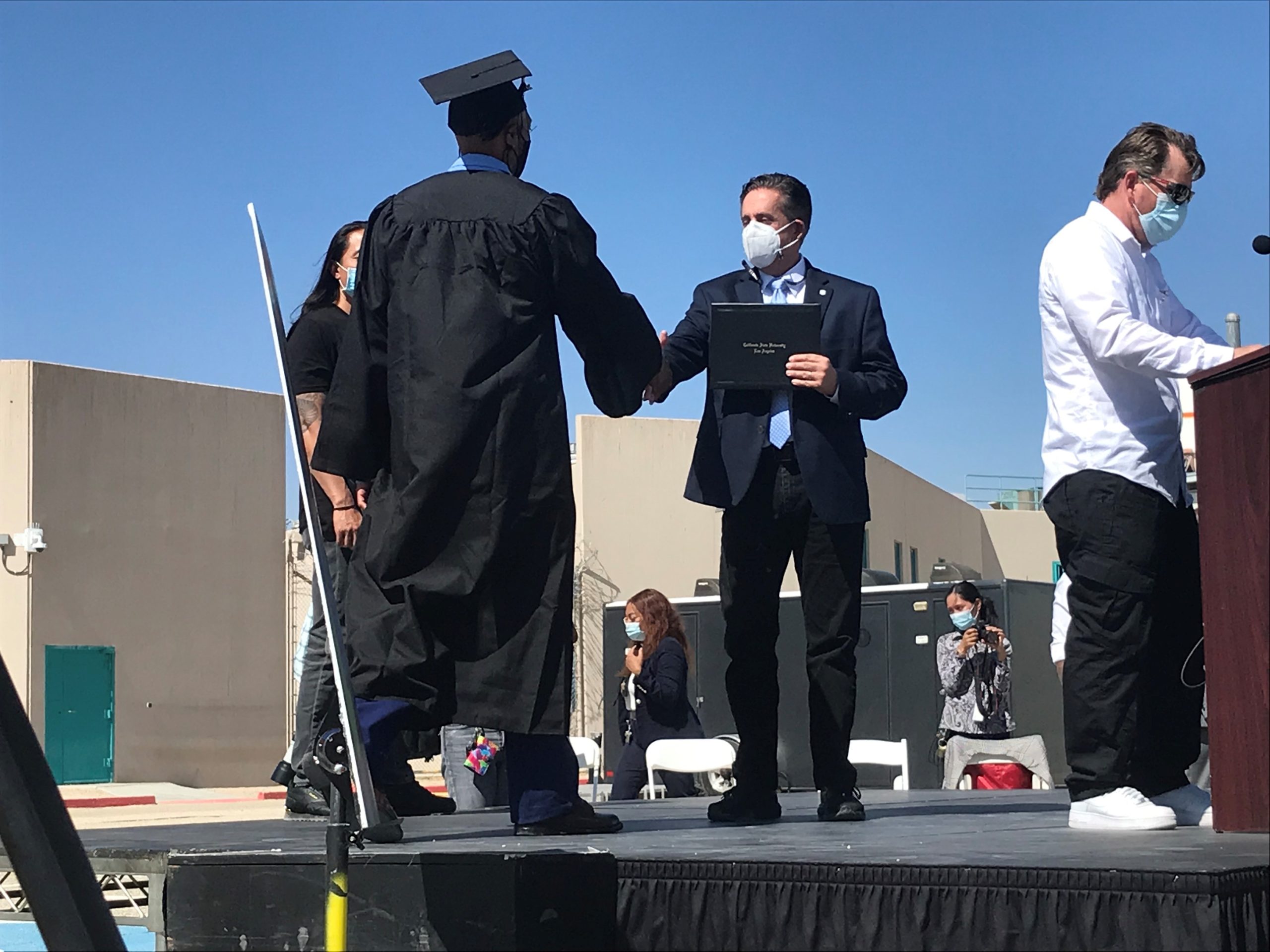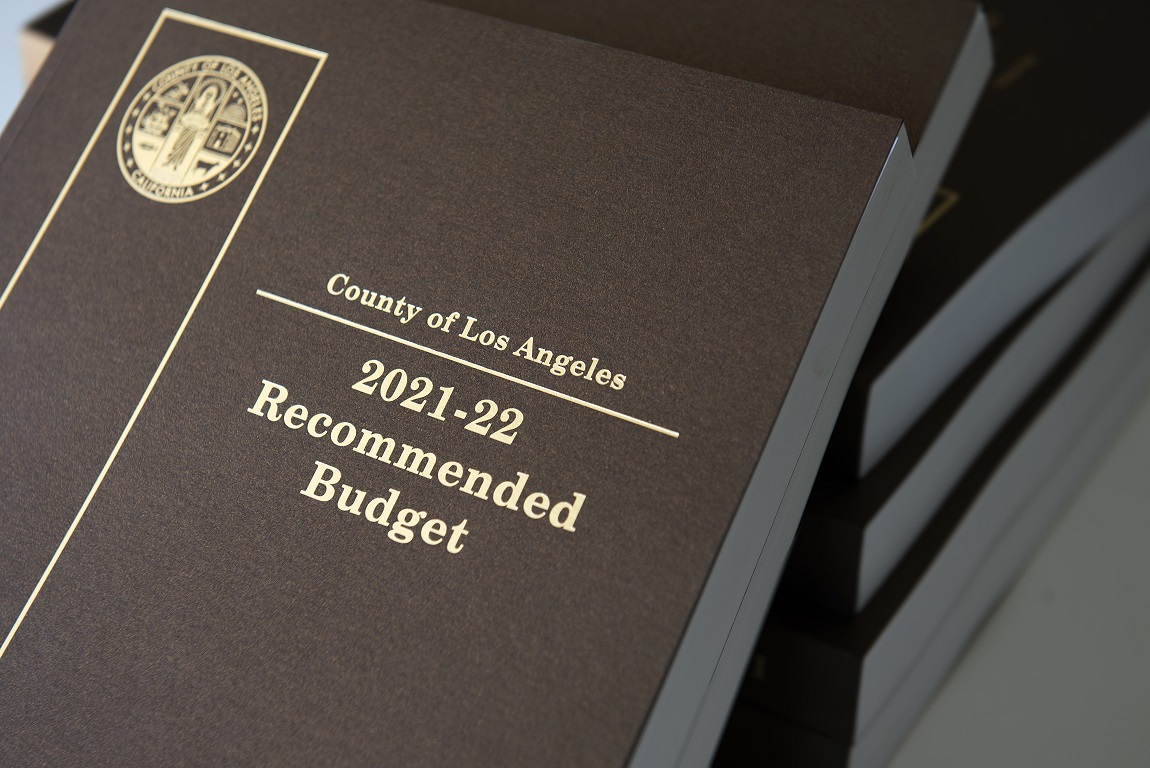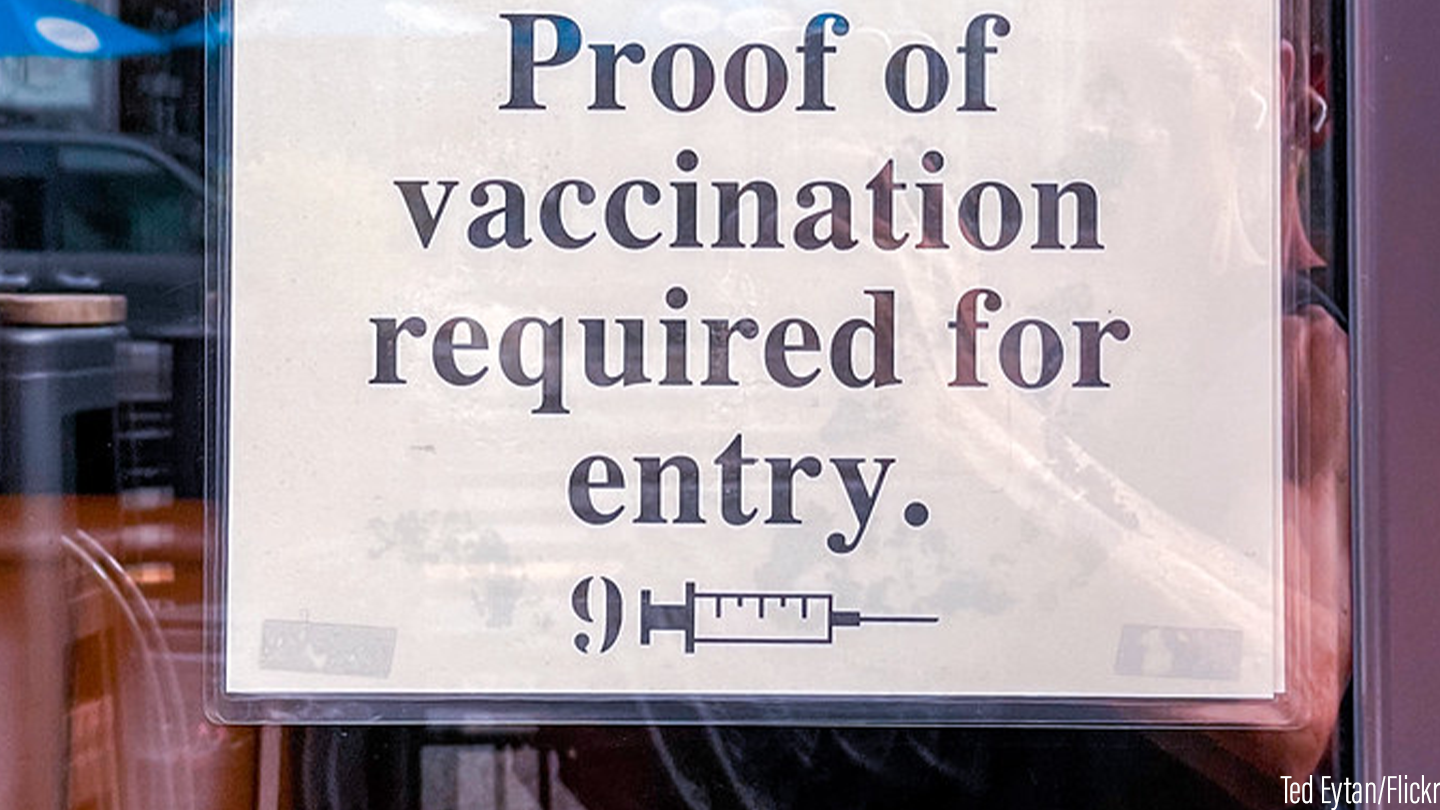Twenty-five incarcerated students at the California state prison in Lancaster received bachelor of arts degrees Tuesday through an educational partnership between the prison and Cal State Los Angeles.
The prison held a ceremony Tuesday for the 25 students who received their degrees in communications studies, marking the first graduation in a state prison from a California State University campus, according to the California Department of Corrections and Rehabilitation.
Cal State Los Angeles is one of 67 post-secondary schools that offer educational programs through the Second Chance Pell Program, and is the only university to offer a communications studies degree.
The university’s collaboration with California State Prison, Los Angeles County differs from other educational correspondence programs in that it offers face-to-face instruction through video lessons where students can interact live with faculty, according to the CDCR.
Incarcerated students take one or two courses per semester toward a degree in communications, with a focus on organizational communication.
Nine graduates from the program participated in commencement studies on the Cal State LA campus in July. Of those nine, five have been accepted into graduate programs at the university.
The educational programs have been so successful that access to Pell grants for incarcerated students is expected to be expanded beginning July 2023, according to the CDCR.
“College is much less expensive than incarceration, and recidivism rates for students who have taken college classes are vastly lower than for those who have not,” said CDCR’s Office of Correctional Education superintendent Shannon Swain.
“Correctional education helps create safer neighborhoods with less crime, helps create citizens who work and pay taxes and contribute to their communities and has a multi-generational positive impact,” Swain added.







